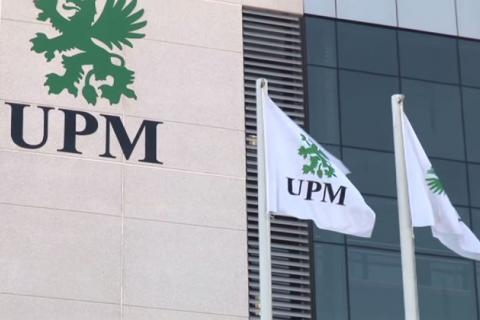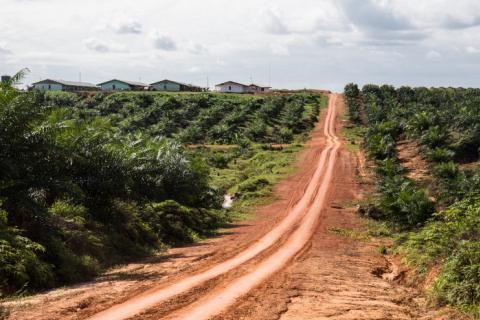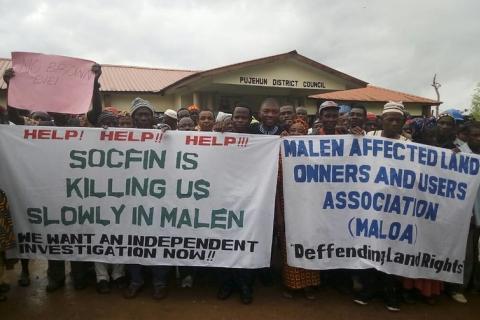Members of MOVUS (Movement for a Sustainable Uruguay) denounced before the courts that UPM pulp company failed to comply the environmental conditions under which the installation of its new pulp mill in the department of Durazno, Uruguay, was authorized. They request the suspension of the works in progress until these requirements are fully met.
Other information
This 1992 book, edited by Wolfgang Sachs, compiles more than 15 key concepts that served as a basis for, and a way to expand, destructive discourse about “development.” Each of the concepts analyzed in the book synthesizes a set of assumptions that reinforce the Western world view, wherein certain aspects and subjects of reality are highlighted and others are excluded. This is a necessary reflection that is still current today.
Women’s March Global and Semperviva Feminist Organization (SOF) have produced a series of videos that bring a feminist critique to reflect on corporate power in three industrial sectors of exploitations: the food industry, the digitalization industry and the textile industry.
The NGO Global Witness recently released its 2019 report on the violence against land and environmental defenders - those who are at the frontlines of resisting the devastation and exploitation of people and territories. Their report evidences that 2019 was the year with the highest number yet of people murdered in one year since 2012, when the NGO began to publish data. 212 land and environmental defenders were killed in 2019, an average of more than four people a week. Over half of all reported killings occurred in two countries: Colombia and the Philippines.
Three-quarters of oil palm concessions in Indonesia and Malaysian Borneo certified by the Roundtable on Sustainable Palm Oil (RSPO) occupy land that was forest and/or wildlife habitat as recently as 30 years ago.
A network of civil society organizations and social movements launched a letter to expose how big companies (agribusiness, industrial tree plantation, oil and mining sectors) take advantage of this time of crisis with the Covid-19 pandemic to strengthen the image of their brands by making donations to vulnerable populations. Meanwhile, they continue operating in the midst of the pandemic.
We invite you to complete the survey. Your inputs, suggestions and constructive critiques are essential for the planning and production of the WRM Bulletin.
Here we share some fragments of a conversation between the journalist Margaret Prescod, from the Sojourner Truth radio show on KPFK Radio, and Winnie Overbeek, WRM coordinator, on July 9th 2020.
The documentary “Selling out West Papua”, shown on Al Jazeera, with associated reporting by news portals Gecko and Mongabay, reveals how two Korean companies, Posco and Korindo, are engaging in corrupt deals as they buy up forests on a large scale to develop oil palm plantations in West Papua. The impacts for communities are devastating.
In a series of articles, forest communities talk about the violation of their forest rights as a result of government approvals for forest destruction in connection with hydropower and coal projects that were passed or accelerated during the pandemic. During the lockdown, the Ministry of Environment and Forests approved large-scale industrial, mining, hydropower, roads and highway construction projects without the required due diligence and in disregard to environmental laws and the Forest Rights Act (FRA).
“Dulet”: A highly transferable disease brought by the meginalew (good spirit) to discipline the wrongdoings of humanity. Alim “Kim” Bandara, a member of the Indigenous Political Structure of the Teduray and Lambangian Indigenous Peoples in south-central Mindanao, Philippines, explains how Covid-19 and dulet are similar in many aspects. In this article, Bandara explains how the Teduray and Lambangian have confronted similar situations before and what lessons these experiences hold.
Civil society organizations welcomed a Technical Committee report set up by the government of Sierra Leone to look into a legal dispute between the multinational company Socfin and communities affected by the company’s oil palm plantations in the Malen Chiefdom in Sierra Leone. The completion of the report concludes the investigative phase of the conflict resolution process concerning the land conflict between Socfin and communities in the Malen Chiefdom and is an important step towards finding a resolution to the long-standing land dispute.










